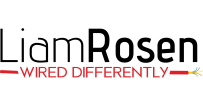Ed Charrier (second row, orange jacket) was an Austin-based ultimate (frisbee) player in the early 1990s. (Those familiar with contemporary ultimate may recognize the last name in Ed’s niece, Diana Charrier, a national champion and USA Under-24 National Team member).
If you’ve played any sort of skill game, you know that there are three types of players:
- those that overestimate how good they are
- those that more or less know how good they are
- those that aren’t yet aware of how good they are
Ed was the middle type. He was a great player, but his greatest strength was being perfectly in tune with his own playing ability. He knew exactly what he could do and he executed on it flawlessly, rather than trying to do too much or failing to do enough. In his honor, Ed’s contemporaries in Austin coined the “Ed Charrier Rating”.
The Ed Charrier Rating is a numerical scale that represents the ratio of how good someone thinks they are at something compared to how good they actually are at something.
If you think you’re a “50” skill level at watercolor painting, and you’re actually a “25”, you’re 50/25 = 2, or wildly overconfident.
If you think you’re a “15” skill level at tennis and you’re actually a “15”, you’re 15/15 = 1, or perfectly-calibrated, like Ed Charrier himself.
If you think you’re a “3” skill level at ultimate and you’re actually a “9”, you’re 3/9 = 0.333, or wildly underconfident.
Naturally, the lower the actual skill level, the more skewed the ratios can be, roughly in line with the Dunning-Krüger Effect. If you’re just starting out, you might think you’re orders of magnitude better than you actually are. The longer you participate in your skill of choice, the closer your Charrier Rating should converge upon 1 (if it doesn’t, you either have major confidence issues or are just delusional!)
So, what is the ideal Ed Charrier Rating? Most would say 1, because it represents the Platonic ideal. But as someone who has consisently been just over 1 (an overestimator of my own abilities), I’d actually say this is the best option for improvement.
If you consistently overestimate your own abilities by just a little bit, you constantly put yourself up against better competition, which could accelerate your progress compared to someone who had a more accurate picture of their own abilities.
Also, if you experience just the right amount of failure due to playing higher competition, it will increase your internal drive and propel you to work even harder — at least, this is how it worked for me during my ultimate career!
On the other hand, players that are slightly below 1 make great teammates, because they’re humble. But we’ve all played with guys who we just wish would step up and take up more space in bigger moments, guys that maybe don’t realize their true potential because they don’t believe in themselves enough. Having a low Charrier Rating will make you more likable, but may limit your progress.
Whether you’re underconfident or overconfident, you don’t want to skew to the extremes. At the end of the day, any Charrier Rating that approximates 1, perhaps anywhere in the 0.8 to 1.2 range, is probably the most ideal.
And even if the ratings can tenuous, they’re a fun talking point. So… what’s your Charrier Rating?

Pingback: Too Much of a Good Thing: What Mania Feels Like